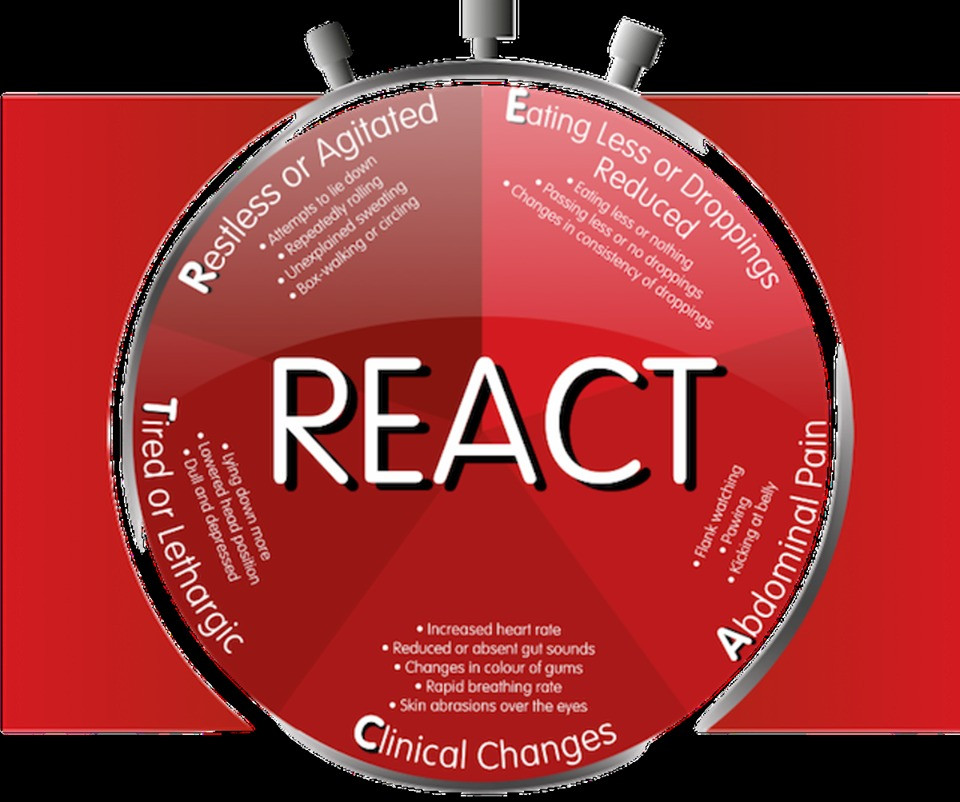Colic! It's not a surprise really when 1 in 3 of emergency call outs are due to colic, so it really is worth thinking about what you would do in an emergency. Colic can be a devastating thing as it comes on so quickly and the horse may be otherwise very healthy. Luckily 8/10 cases are mild and non-critical and these can be treated by your vet at your yard. Don't wait for the signs of colic to become more severe before calling us, as if the underlying cause is more serious, rapid decision making is needed from owners and vets. It is also common for colic to be confused with other conditions, such as grass sickness, laminitis or atypical myopathy which require rapid diagnosis and treatment.
Here at Ridings Equine Vets we are BHS Vet REACT Colic Champions, a new scheme coordinated by The British Horse Society and The School of Veterinary Medicine and Science, University of Nottingham.
The vet REACT campaign gives you an easy way to remember the signs of colic:
R-E-A-C-T
R) Restless or agitated - may be showing repeated rolling or attempts to lie down, unexplained sweating, box-walking or circling
E) Eating less or reduced droppings – Poor appetite, passing less or no droppings, changes in consistecy of droppings
A) Abdominal pain – Flank watching, pawing, kicking at belly
C) Clinical changes – Increased pulse rate, reduced gut sounds, abrasions over the eyes, rapid breathing
T) Tired or lethargic – lowered head position, lying down more than usual, depressed
So what should you do if you notice your horse showing any of the above signs?
1) Call your vet immediately, even if the signs are mild or vague
2) Remove all food from the environment, allow access to water. Remove any potentially dangerous objects e.g. haynet/ stable toys
3) If it is safe to do so, take your horse's pulse rate, temperature and breathing rate
4) Note the number and consistency of recent droppings
5) Catch any urine that is passed, if safe to do so
6) Rolling – If your horse is persistently trying to roll, do not stop them from doing this, keep them in a safe area and keep yourself out of the way. Rolling does NOT cause twists/torsions!
7) Exercise – only if not trying to roll, gentle walking for a maximum of 15-20 minutes is ok. Do not force your horse to walk or make them keep walking if they are painful.
8) Whilst waiting for your vet it is worth considering how you would transport your horse to hospital, if referral is needed and you are able to do so.
9) Do not administer any treatments
As always, don't hesitate to pick up the phone for a chat if you would like any advice, and look out for info coming soon on our upcoming client talk during which we will be exploring colic a bit further.
Jess Timmins x


